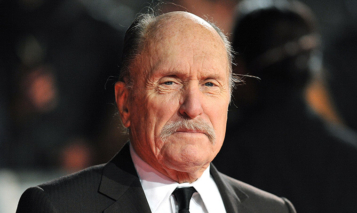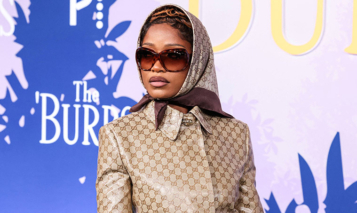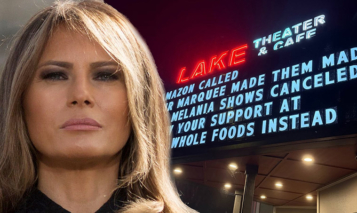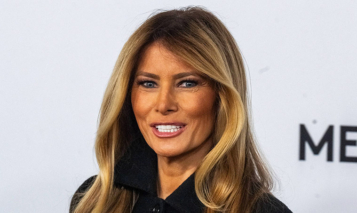
The NY Times contributor Carvell Wallace penned an emotional review of the new movie Queen & Slim, in theaters everywhere on Wednesday, Nov. 27.
Wallace, a Black father of two teenagers, urges moviegoers to give Queen & Slim a chance. He says they might be among “the great love stories of all time.”
Queen & Slim is about a Black couple who meet on Tinder and go out to a Cleveland diner for their first date.
The man (Get Out star Daniel Kaluuya) is a minimum wage Costco cashier whose deep faith in God is reflected on his vanity license plate that reads: “TrustGod.”
Queen (played by British newcomer Jodie Turner-Smith) is an uptight defense lawyer and atheist. The date is a disaster from the start. The only reason she went out with him, she says, is because he looked sad in his profile photo, and she felt sorry for him.
Queen has an attitude because one of her clients was sentenced to die on Ohio’s death row.
“Was he innocent?” Slim asks. “Does it matter?” she snaps. “The state shouldn’t decide who lives or dies.”
The movie’s flimsy plot line is based on that argument.
After dinner, Slim drives Queen home. On the way, his car is pulled over by an aggressive white cop.
Slim is polite and courteous at first. But Queen, the defense lawyer, knows her rights and just won’t stop talking (the film’s director, Melina Matsoukas, was “haunted” by the footage of Sandra Bland’s arrest).
When Slim asks the cop to hurry it up because he’s cold, the cop draws his weapon, because, you know, he fears for his life.
Queen reaches for her cell phone to record the encounter while Slim and the cop struggle over the gun. The gun discharges, grazing Queen on the thigh. Now fearing for his life, Slim kills the cop.
Slim wants to call his folks and turn himself in. He has a good case for self-defense. But Queen, the defense lawyer, decides to throw her law career away by ordering Slim to go on the lam with her.
Matsoukas, who directed Beyonce’s music video “Lemonade”, takes the couple on a meandering journey from the Midwest to the Deep South.

Their first stop is the home of Queen’s Uncle Earl in New Orleans. Uncle Earl (Bokeem Woodbine) is a war veteran and a pimp. Among his scantily clad hookers is Pose star Indya Moore, a cross-dresser who helps Queen remove her box braids so she will be less recognizable while on the run.
Of all the eccentric characters Queen & Slim encounter on their journey, Moore is the least memorable. Yet Wallace spends time describing the moments between the biological female Queen and the male-to-female trans Moore.
“The camera lingers on them in the intimate act of hairdressing; cool light fills the room. Queen breathes slowly, feeling protected for maybe the first time in the film.”
It isn’t hard to figure out where Wallace is going with this: Queen didn’t feel protected when she was with Slim, a heterosexual male?
Wallace was physically and emotionally moved by Queen & Slim. After the film ended, he went into a bathroom for an ugly cry. “I put my sunglasses on because I was bawling, my whole torso heaving,” he wrote.
Wallace goes overboard in his praise of the movie, over-exaggerating the “love story” between the two hapless fugitives.
Unlike the real Bonnie & Clyde, who were in a longterm relationship, Queen and Slim barely knew each other. They weren’t even planning to go on a second date before the fateful encounter with the cop.
Their brief relationship is described by Wallace as “true, active, life-affirming love… He allows her anger, makes space for her hurt. Isn’t this what love is?”
“If you allow it to be, Queen & Slim can be one of the great love stories of all time,” Wallace writes.
If Queen & Slim is considered to be the standard for mature, life-affirming love, it is no wonder the divorce rate in America is over 70%.





